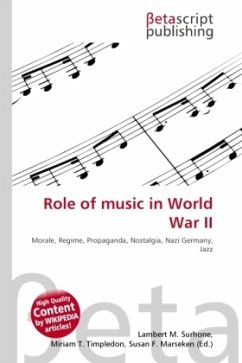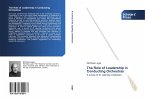High Quality Content by WIKIPEDIA articles! During World War II both Allied and Axis powers undertook a massive effort in broadcasting and producing music generally for three reasons: To boost the morale of troops and civilians suffering under the war. To attract enemy troops to propaganda programs. To express a vision of the nature of their regimes. For the humans drawn in to the war the motivations would be more honest. Songs would provide nostalgia for peace, to motivate them, or to promise a better future. In the case of Nazi Germany, which took an active role in defining proper music, the act of listening to music took on a political role it did not in the United Kingdom or the USA. For example, listening to jazz in Germany could be an act of political opposition since so many Jazz musicians were African Americans or Jews. But despite a long history of hostility towards Jazz in the United States the troops and young people suffering the hardships of war were fed a mass of black inspired music with no political demand that men about to risk their lives listen to proper white music.
Bitte wählen Sie Ihr Anliegen aus.
Rechnungen
Retourenschein anfordern
Bestellstatus
Storno








